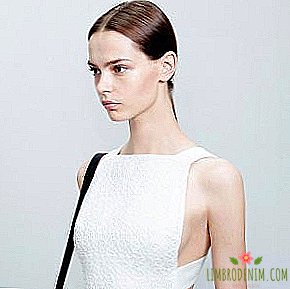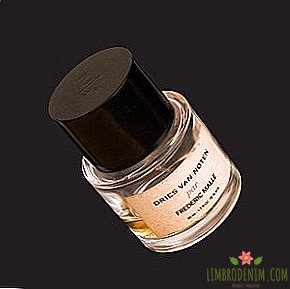Poet Inga Shepeleva about favorite books
IN BACKGROUND "BOOK SHELF" we ask journalists, writers, scholars, curators, and other heroines about their literary preferences and publications, which occupy an important place in their bookcase. Today, the poet, writer and journalist Inga Shepeleva shares her stories about favorite books.

 I grew up in Yakutia, in a family of scientists. Three five-story buildings on stilts, an institute, a snowy forest around. My habit of reading was formed by the cold: when it's minus forty-five outside, all I can do is read. I had a childhood like from Soviet films of the sixties: a lot of educated people around, passionate about their work, science. My dad could not see the walls in the office - only solid bookcases. True, all these were incomprehensible publications for me, but their very presence in such numbers tuned to the desired mode. Already in high school I learned to read several books at the same time and continue to do so until now. Then poetry appeared in my life, or even the realization that one can express one's feelings through the use of a word, a rhythm. But, oddly enough, I do not think that literature came to me from books. I became a poet without reading, but feeling. Everything that I do comes from the air, and books, texts are only a way of perception, comparison and analysis. Exploring the work of the mind and hearts of other people, I try to understand myself better.
I grew up in Yakutia, in a family of scientists. Three five-story buildings on stilts, an institute, a snowy forest around. My habit of reading was formed by the cold: when it's minus forty-five outside, all I can do is read. I had a childhood like from Soviet films of the sixties: a lot of educated people around, passionate about their work, science. My dad could not see the walls in the office - only solid bookcases. True, all these were incomprehensible publications for me, but their very presence in such numbers tuned to the desired mode. Already in high school I learned to read several books at the same time and continue to do so until now. Then poetry appeared in my life, or even the realization that one can express one's feelings through the use of a word, a rhythm. But, oddly enough, I do not think that literature came to me from books. I became a poet without reading, but feeling. Everything that I do comes from the air, and books, texts are only a way of perception, comparison and analysis. Exploring the work of the mind and hearts of other people, I try to understand myself better.
I consider the transition period to be the beginning of studies and moving to Moscow. If earlier, in childhood, books were rather a pleasure for me, then at seventeen they became a necessity. At the same time, the first crisis occurred, and I realized that it was necessary to take a serious approach to what had previously seemed pure and boundless joy. Simultaneously with the zealous punching of the academic education system, new friends also came, and with them new books, quite unlike those I read in childhood. Probably, the confrontation between academism and poetry remained in me, the awareness that both are equally necessary and linked.
The first aesthetic shock and scrapping for me were the oberiuts: Vvedensky, Harms, Lipavsky, Vaginov, Oleynikov, Zabolotsky. And almost after-French surrealism. Not having time to comprehend the language, I learned about its plasticity, insolvency, ability to break. I remember that my friends and I were carrying a white volume of Vvedensky stolen from the library (it was not republished at that time and it was impossible to buy it) so that he could drink wine with us and have fun.
This was the transition - the line between literature and life was erased, for me they are firmly connected from those distant times, intertwined, embedded into each other. By the way, I have a little pagan attitude to art in general. Analysis of the analysis, but still I am more face, heart pressed to my favorite works, absorb them without a trace. Probably why I did not become a theorist and critic.
Before me there is never a question what to read. On the contrary, you need to read so many things all the time that it becomes scary. I have a note in my phone with a list of books for reading. The list is filled up randomly and with incredible speed. I write down the names and authors during conversations and correspondence with friends and colleagues. I try to listen to everyone, and often in a book about which someone completely remote from literature tells me, I find a lot of interesting and important things for myself. And, of course, I try to read what my colleagues and comrades in the workshop advise. In general, I adore lists, catalogs, inventories, brief notes about the authors - they themselves are already like ready-made poetic text. For the same reason, I love quotes taken out of context, which have acquired a new meaning.
I have a damn consumer attitude to books: I distribute them right and left - to friends, friends, casual acquaintances. Not ashore, because when I take something from the text myself, I really want to share it. Of course, they do not return, lose. I have on my bookshelf some kind of wild set of everything in a row, it is constantly changing. I very rarely read prose, mostly poetry and necessarily theory. In this sense, in the choice between fiction and non-fiction for me, of course, the latter is more important. Constant and sometimes ridiculous poetic tremor is necessary to be supported by solid knowledge, otherwise it will not work. Now, for example, I am fond of mythology, totemism, primitive culture. Before that, I was interested in feminism. Even earlier - esoteric, religion, history of physicality. In connection with the frequent change of themes and sighting points, books are constantly required. There is a constant exchange, and I really like it. Probably, I will never compile a normal home library, but, to be honest, I absolutely do not need it. The only exception is collections of friends and comrades, signed for the memory.

Elena Kostyleva
"Lydia"
This book, a small but very beloved, was presented to me by a friend - he worked in the "Word Order in the Electro-Theater". I read it right away, right in the lobby - there was some kind of premiere, buffet, I had to write about the play. But Kostyleva took me out of there, as if she had brought me back to my house. Where it is good and painful to be, where every physical striving is divine given, and every movement of the heart is an example of hard work. In general, this book with me for several years. Pages are torn out of it: I gave it to some of my close friends to read and two poems disappeared from there. It became even better. She is with me, but I seem to have already shared it.
Gennady Gor
"Poems 1942-1944"
One of the favorite poets, which is impossible to read without everything inside being stone. The blockade cycle of Horus was published entirely in only the two thousand years. No one, even close ones, knew that he was writing poetry at that time. This is an absolutely amazing cycle, beautiful and terrible to the limit because it is perfect in its figurative and rhythmic structure. The book was presented to me by a friend, knowing my eternal love for the obariuts. Indeed, Gore is considered the direct successor of the tradition. In the same blockade texts, at first glance, an easy, galloping, absurd horse gallops hooves, burning against death, hunger and cold — is also absurd, but truly incomprehensible. This is no longer black humor, as in Kharms and Vvedensky, but a real war, real blackness. Next to death, any grotesque becomes even more grotesque, and any beauty — words, images, actions — acquires an amazing tragic scope. These poems are monstrous, because they describe wild, scary things simply and whole, and they are beautiful, because they speak in amazing language of the Russian avant-garde about what it is almost impossible to talk about.
Alexander Anashevich
"Birds, butterflies, dead animals"
I gently love Anashevich for about twelve years now - even during the first years of the institute, a friend showed me a delicate collection of the OGI "Unpleasant Movie" publishing house. These verses are like a revolving mirror in which no one’s reflection can be seen - neither male nor female. One continuous deception, trickery, slapstick. And behind this game there is another world — the otherworldly, amazing, grotesque. For me, his poetics is an ideal example of postmodernism with a soul (or a game of postmodernism, or a game of soul). You never guess who is in the mirror, and this is scary, and sad, and fun. I am, of course, doing some historical book, but this one - in exchange for the memorable one, so that it is near.
Walt Whitman
"Leaves of Grass"
Specially made this book in the list - as a tribute to the sources, or something. In my related poetic tree there are several tribes - Whitman, for example, something like an ancestor. In one way or another, he influenced almost everyone I love, because he was before everyone and was unique for his XIX century. There are two of them for me - Whitman and Emily Dickinson.
I love him for his naivety, for a dervish trance, for endless exclamations and glorification of everything in a row: from pebble to mason, from body to soul, from momentary to eternity. He seems to me to be some kind of fairy-tale wanderer, with his amazing free-life, conjuring people in the name of great, boundless love. Such a love trance, accepting everything, allowing everything, giving everything.
Boris Poplavsky
"Orpheus in Hell"
Another incomprehensible and eternally beloved poet. This book of 2009 is a collection of his unknown poems and drawings. I do not have a favorite collection of my own - only the collected texts are in a separate document on the desktop. Poplavsky attracted me in his youth primarily way - like a rock star, lost in the waves of chaos. His short, rather unhappy life (and above all a completely surprising accidental death), coupled with a stable system of images, very close to me from the very beginning, makes him also something like an ancestor. It is not clear why this is not Rambo, for example, or Baudelaire. And not even the beloved Paul Eluard. And this gloomy Russian in Paris, raving flags, airships, death. Probably, with this book, I pay tribute to my early love for decadent, visionary, turned-up Russianness, sliding on black skates on ice ponds with hands behind my back, towards death.
Arkady Dragomoshchenko
"Description"
Miraculously, the surviving book of the two thousandth year of publication, I keep it as a flag, I return often. This is probably one of the few books that need to be stored and re-read. Read with respect, but not with a sinking. Arkady Dragomoshchenko is a poet capable of discovering other limits of language, metaphors, image, meaning. The most important thing is to get a grasp of the infinitely changing modes, the meanings and meanings that constantly refute themselves. Yampolsky wrote about Drahomoshchenko's elusive poetics, that it was impossible to appropriate him. And it is hardly possible to learn anything either, but the very awareness of deadly emptiness, calmness greater than poetry, depths greater than language, already gives a lot.
Alvaro de Campos (Fernando Pessoa)
"Sea Ode"
New, very beautiful bilingual edition. To be honest, I specifically bought it for shooting, because before that I had read and re-read "Sea Ode" in pdf format on a computer. Fernando Pessoa is an amazing poet who has become literally all Portuguese poetry in the face of his endless heteronyms, as if poets were in a poet, each with his own name, style, character, biography. Pessoa had more than seventy. Alvaro de Campos is one of the many heteronyms of the poet, a modernist who glorifies the new technological age. However, in the first place, "The Sea Ode" is the loneliness of the hero (or the author, or the heteronym, or all together), waiting for something incomprehensible on the quay in front of the gigantic sea space. All together - the multiplicity, the theme, the poetics, the text itself - makes the Sea Ode extremely modern, although it was written in 1915.
Anna Gorenko
"Have time to watch"
The collection, snatched from the shelf of the store "Word order" in St. Petersburg before the train. In general, I have few paper books, even my favorite poets - basically everything is mixed up in random text documents, copied from different sites. The same happened to Anna Gorenko, this book is an accident. I learned about it from the program article by Alexander Skidan about women's poetry "Stronger than Uranium". There, as an example, a very good poem was given “The body followed the body after me”. It immediately brought me to the thought of some visionary experience, so beloved by me in poetry. Narcotic, infantile, marginal, deadly, surrealistic poetics of Gorenko, built into the classical rhythmic structure, make these texts unique. Her pseudonym is Akhmatova’s real surname, and all this again leads a decadent esoteric Russian barrel organ: almost like Popovsky’s a hundred years ago, in Paris émigré delirium, in Gorenko, Israel in the wild nineties. As if there is some kind of universal unstoppable youth, eternal and long gone at the same time.
"Poetry. Textbook"
I added this huge 900-page anthology of Russian poetry to the list on purpose. She herself - a complete demo list. And if someone is interested in poetry, then what can I say more than what the textbook can say? Therefore, I almost did not see my copy: he wanders from hand to hand, I give it to read most of all. For me, this book is valuable because it seems to have overcome the crisis of breaking Russian poetry into classical and modern, because no one has ever put together a number of poets, many of whom are younger than me, and, for example, Balmont, Pushkin or Lomonosov. And the book itself is not in chronological order, as usual (which is already a temporary gap in itself), but in thematic sections that unite the seemingly incompatible.
Alexander Vvedensky
"Everything"
I discovered Vvedensky in my early youth from the program poem “The Beast”, which he himself called a philosophical treatise. In fact, it began with a serious passion for poetry. When the world, time, logic, meaning split before my eyes, and then something different, integral, inexplicable was created from shapeless boulders, I realized that a verbal miracle is no less valuable than the present (if there are such). And this verbal miracle — crushing the world and time, waving a tongue like a hammer, revolutionary, absurdist — has become a metaphysical flag that no one can take.




